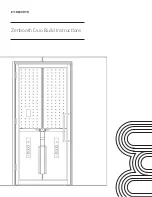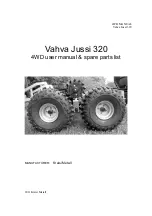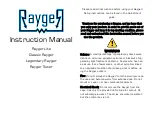
The display normally shows, beside the USB script, a “play” triangle in-
dicating that the track is currently playing.
If the symbol II is shown, it means that the track is in pause and that
the Giove FREENET is in MUTE modality (short pressure of the ENTER
key).
AUX IN source
By selecting this source it is possible to listen to a source connected to
the rear terminals of the device.
Such source could be a mp3 player, a CD player or any other device
equipped with analog audio line output or headphone output.
MIC OUT source
The MIC OUT source allows to use the Giove FREENET as a mi-
crophone base, able to send the signal of its own internal microphone
towards other devices. The signal, of analog monophonic typology, is
sent exclusively through the MIC+ output, so it will not be possible to li-
sten to the message by means of the speakers connected to the above
described Giove FREENET.
MIC IN source
The MIC IN source allows to listen to another source equipped with ana-
log monophonic signal line, or the microphone signal of another Giove
FRENET, connected to the MIC+ terminal.
SOURCES 1 – 7
(CD, DVD, TV, DVR, AUX1, AUX2, MP3)
The audio signal of these sources comes from their respective inputs
in the Giove CA20/CA21 audio controllers.
After selecting one of these inputs, appears the screen referred to the
IR source controls.
7
Summary of Contents for GIOVE FREENET
Page 15: ...14 WIRING DIAGRAMS Audio system with CA20 CA21 FREENET and ICONTROLIGHT ...
Page 16: ...15 Audio system with FREENET supervised by home automation system ...
Page 17: ...16 Audio system with FREENET supervised by ICONTROLIGHT ...
Page 18: ...17 Wiring the Giove FREENET with the CA20 ...
Page 19: ...18 ...
Page 20: ...19 Wiring the Giove FREENET with the CA21 ...
Page 21: ...20 ...
Page 22: ...21 Special wirings of speakers 8 ohm 3pcs 4pcs 6pcs Minimum impedance 4 Ohm for channel ...
Page 29: ...28 ...
Page 30: ...29 ...
Page 31: ...30 ...









































